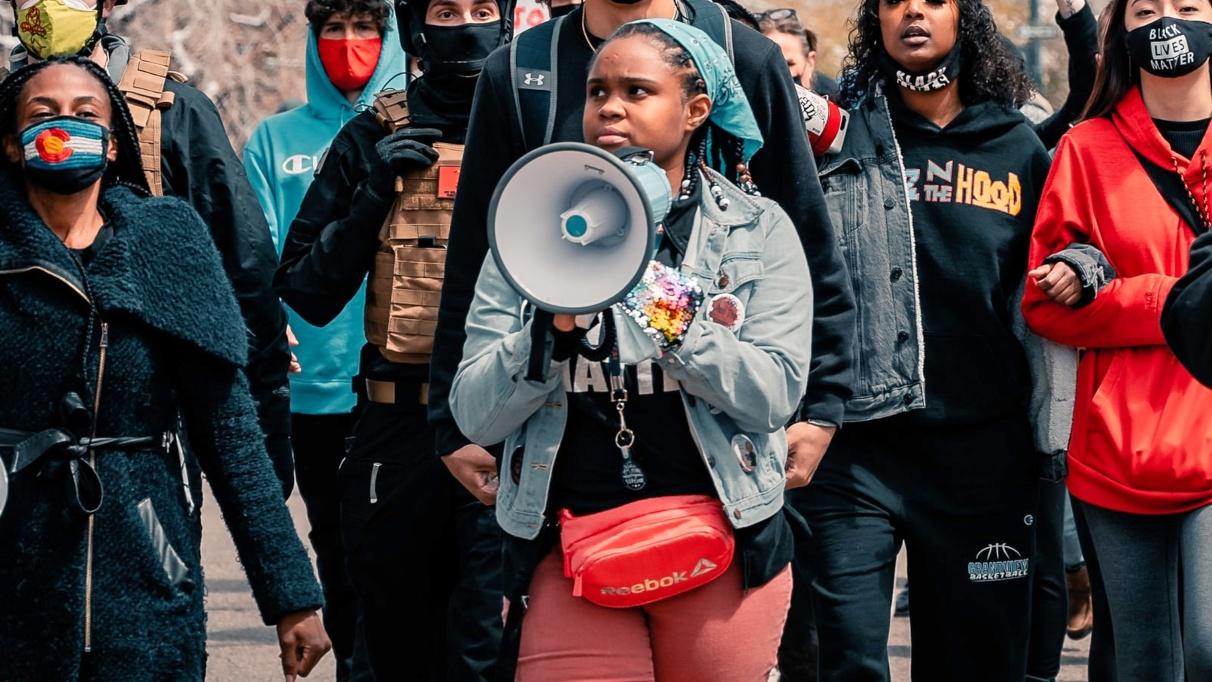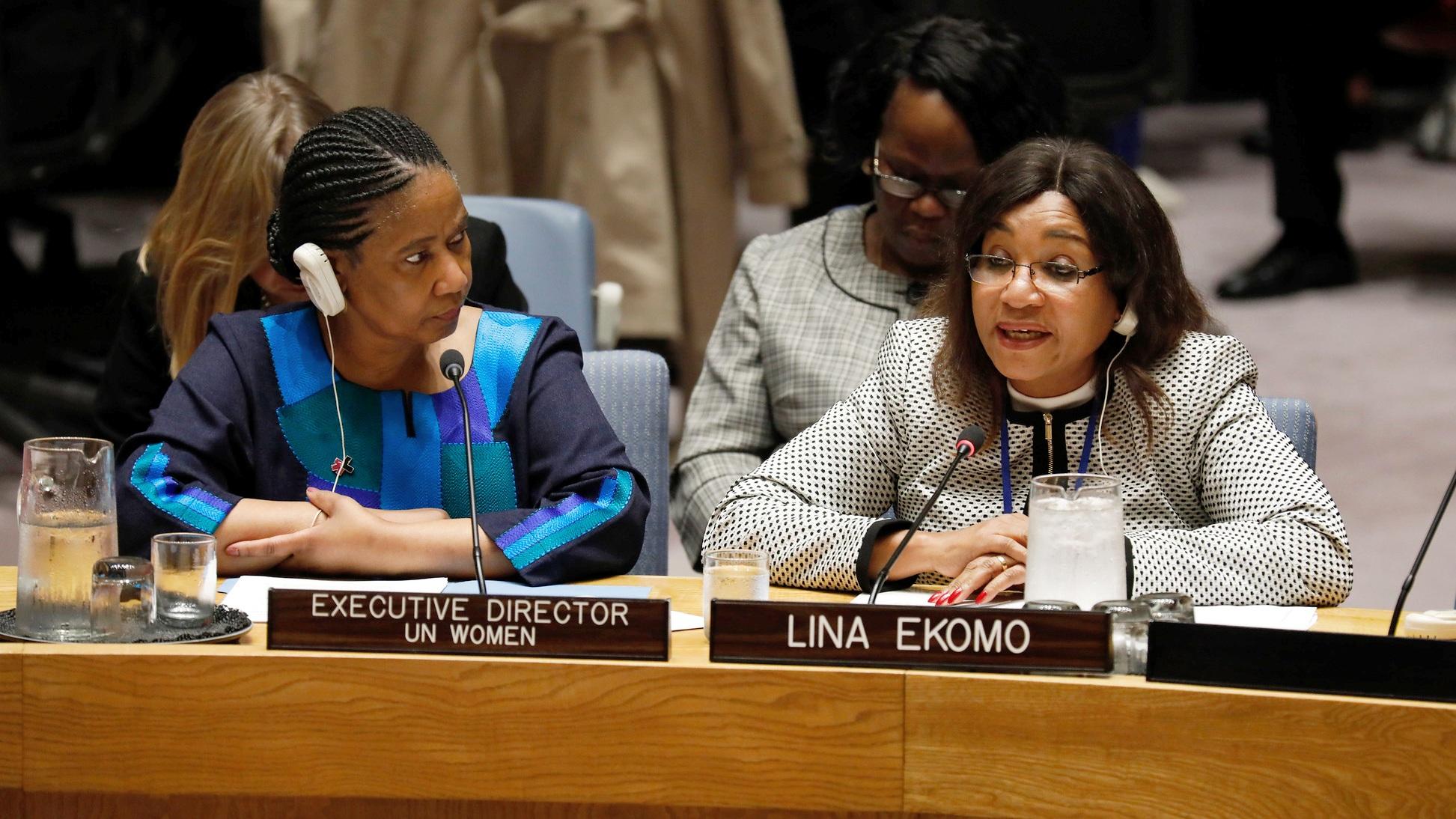In a world where single stories and headlines drive narratives, African women tend to be portrayed as victims. Meanwhile, digital tools and social media are seen as empowering innovations that can fast-track Africa’s development and equip citizens to change their individual and collective future. But the reality is more complex. Maëlle Salzinger and Lidet Tadesse Shiferaw look at the relationship between women’s activism and digitalisation, and how women increasingly use social media for social and political mobilisation.
Overcoming barriers to women’s political mobilisation
In many contexts in Africa and beyond, women are still seen as unfit for public and political leadership. They are relegated to the domestic sphere as caretakers and home keepers. They act as community leaders and solve conflicts in their community but are rarely given proper recognition.
Online engagement can help women bridge the gap between the domestic and the public sphere. It allows them to mobilise and lead social movements more flexibly, with less physical interaction than offline activism. Online platforms enable women to engage anonymously, and if data privacy is ensured, this helps them to overcome stigma and backlash from their peers and society. In South Africa, university students used Facebook groups to ‘testify’ against routine sexual abuse. Eventually, women came together to demand state responses like in the 2018 Total Shutdown.
Digital spaces also act as platforms for women to find their own agency as changemakers and find peers and role models. A supportive community online provides the psychological, financial and political support needed to lead social movements, and the opportunity to learn from each other and exchange tactics and experiences.
Recognising women’s agency and plurality
Feminist and women’s rights movements have improved women’s lives significantly over centuries. While there may be a tendency to reduce women’s activism to ‘women’s issues’, women mobilise for diverse reasons and diverse ends – sometimes progressive and sometimes regressive.
There are many examples of women contributing to, and leading, nation-wide political movements. In 2019, for instance, women were frontline organisers and protesters in the Sudanese revolution against former president Al-Bashir. Online platforms accelerated this, with female protesters like Alaa Salah going viral and becoming symbols of the revolution. But while women were praised for their leadership, it didn’t translate into more political representation during formal negotiations between civilian and military leaders.
This follows from a well-recognised phenomenon of excluding women from formal processes despite their participation in the leadup to them through social movements, peace processes and even armed struggles. Similarly, women’s digital activism is not immune to the backlash and gendered harassment that are all too common in offline spaces.
Networking and exposure beyond borders
Online platforms can link aspiring changemakers with well-connected, experienced activists who will help them use digital tools for their benefit. Nigeria’s #EndSARS movement against police brutality in 2020 is an example of how activists of the Feminist Coalition used their digital skills and online communities to strengthen a nation-wide movement.
While the well-connected and educated seem to be already exploiting the full potential of social media, marginalised people, issues and narratives can also be more visible through social media. In Uganda, women of the Acholi tribe used the traditional tactic of baring their chests to protest land eviction by the commercial company Madhvani Group. Their resistance received media coverage online and offline and has been largely successful. This should be celebrated, even if women like those from the Acholi tribe are usually underrepresented in online activism.
Local activism and global digital inequality
The barriers to and enablers of women’s digital activism have an international dimension. Digital tools help social movements in Africa reach the global stage, as exemplified by the #EndSARS protests and #SudanUprising. But this is often limited to campaigns in English, French and other European languages. Digital platforms like social media where news can ‘go viral’ rarely engage with online content in African languages. This is a structural barrier. While digital technologies are increasingly becoming a source of news and a key factor in foreign and political decision-making, they remain selective and biased on the basis of place and language.
This is not just about linguistic exclusion; it’s also about agenda-setting. Without more diversified global inputs, the gender issues of the day and global agendas will be defined by a minority of the world’s population. So far, the agenda has largely favoured digital activists, influencers, thinkers and activists from the Anglo-Saxon world.
We should critically look at the power that digital companies have and how they continue to influence social and political narratives with little accountability. Their profit motive, the lack of diversity among their technical and leadership teams, and their management and exploitation of data risks discrimination based on race, religion or other factors. The latter is particularly concerning for African users who increasingly rely on social media to access news and basic internet services and where regulation around personal digital privacy, data governance and the responsibility of global companies is nascent.
The bottom line
Despite not being rightfully recognised and represented in formal political spaces, women in Africa are participating in, and increasingly leading social movements around diverse issues. Digital tools, especially social media have been useful for mobilisation in Africa and elsewhere.
But digital tools should not be seen as silver bullets to women’s political participation. The added value of digital activism needs to be contrasted with the gap in access to digital infrastructure in most African countries, which depends on gender, socio-economic standing, levels of education and, most importantly, urban or rural residence.
It is important to examine how digital tools are managed, how data is governed and who owns and benefits from this data – and how all this can reinforce existing asymmetries of power based on race, gender, socio-economic and geopolitical factors. This needs critical inquiry and policy responses to ensure that women and men in Africa are not left behind in the race to digitalisation.
Photo by Okay Imagery on Pexels





